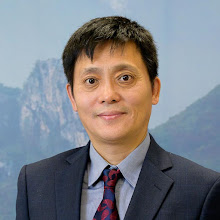 Tiejun Tang
Tiejun TangUrinary disorder is not a single disease. It includes many common diseases. Urinary tract infections (UTI) are more common in women than in men. It's estimated that half of all women in the UK will have a UTI at least once in their life. Men are not luckier than women, because prostate diseases became the other group of common urinary disorders including prostatitis, benign prostatic hyperplasia (BPH) and prostate cancer. The prevalence of prostatitis is 2.2-9.7% of adult men. For men by age 60, over one-half have BPH; by age 85, the number climbs to 90%, according to the American Urological Association. Prostate cancer is the most common cancer in men in the UK, accounting for 25% of all new cases of cancer in males.
Different
urinary disorder diseases show different clinical symptoms:
Ø UTI: frequent, urgent and painful urine; a burning sensation when urinating; urine colour appears darker
or cloudy.
Ø Prostatitis:
discomfort, pain or aching in testicles, or the area between testicles
and perineum, or the tip of penis; discomfort, pain or aching in the lower
abdomen; urinate frequently or urgently; pain or stinging during or after
urinating; lack of libido.
Ø Prostatic hyperplasia: age over 60; trouble
getting a urine stream started and completely stopped; often feeling like need
to urinate; a weak urine stream; a sense that the bladder is not completely empty after urination.
Ø Urinary tract stone: lower back orlower abdominal
pain, which can often be severe; pain or difficulty when urinating,
frequent urination, and at night; cloudy or blood in the urine.
Ø Bladder prolapse: discomfort or pain in the pelvis; tissue
protruding from the vagina; difficulty urinating; feeling that the bladder is
not empty immediately after urinating; urine leakage during sneezing or coughing;
painful intercourse.
The main reasons of UTI and
prostatitis are bacterial infections or any other infections of sexually transmitted diseases (STD). Prostatic hyperplasia and cancer often result from long term prostatitis.
Bladder prolapse is related to excessive sex and multiple labours.
TCM Perspective
Traditional Chinese medicine believes that the kidneys dominate the
water metabolism. All the problems of bladder, ureter and prostate are related
to the kidneys. The symptoms of UTI and
prostatitis are due to bladder dampness and heat. The treatment principle is to
expel dampness and clean away the heat. Prostatic hyperplasia is due to kidney deficiency arising from
the aging process. Invigorating the kidney will benefit the urination. Bladder
prolapse and other pelvic organ prolapse (POP)
are due to sinking of the Qi in the spleen and stomach. The treatment principle
is lifting qi of middle jiao.
Many acupuncture points have a very good function
of regulating urinary disorder. Taixi(KI3), Sanyinjiao(SP6), Zhonngji(RN3) and
Shuidao(ST28) just to name a few. A
randomized controlled clinical trial suggest that women who received 4 weekly bladder specific acupuncture treatments had significant
improvements in bladder capacity, urgency, frequency, and quality-of-life
scores as compared with women who received placebo acupuncture treatments[1].
Bazheng San is a very effective
traditional formula for cleaning bladder damp-heat. It is widely applied to
treat UTI and prostatitis when antibiotics don’t work. Some randomized controlled trials suggest that Chinese herbal medicine
was superior to western medication in improving quality of life and reducing
prostate volume[2].
No matter what kind of urinary
disorder, TCM always can find a right method to solve the problem or relive the
symptoms. Some treatment mechanisms have been proved by modern science, some
still undiscovered. If you have any of the above urinary disorder, contact your
TCM practitioner.
Reference
- Emmons SL. Acupuncture for overactive bladder: a randomized controlled trial.Obstet Gynecol. 2005; 106(1):138-43
- Ma CH. Efficacy and safety of Chinese herbal medicine for benign prostatic hyperplasia: systematic review of randomized controlled trials.Asian J Androl. 2013;15(4):471-82.






